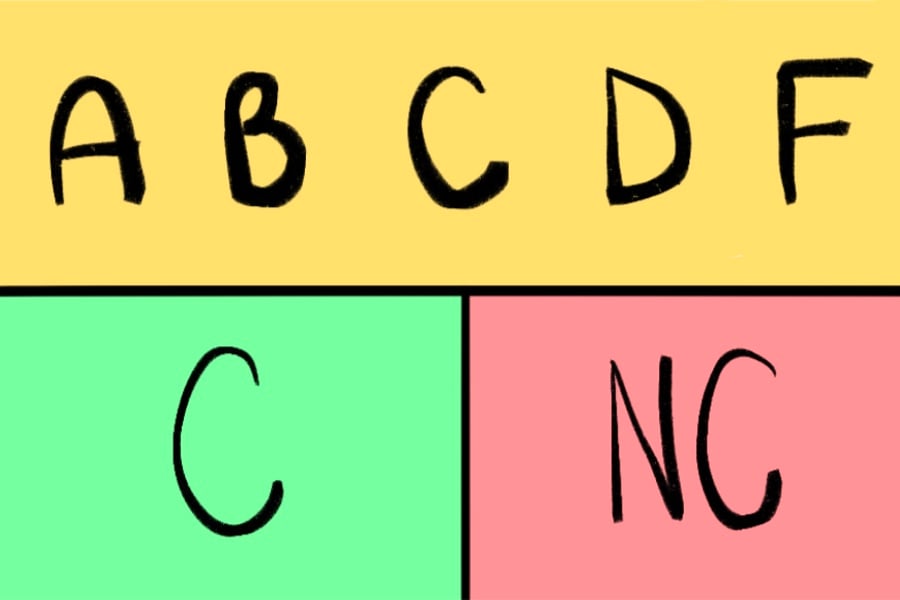NU will not reinstate Credit/No Credit Policy despite omicron surge
NU will not reinstate the Credit/No Credit Policy this Winter Quarter.
January 23, 2022
Northwestern does not plan to offer the Credit/No Credit policy for Winter Quarter, despite an increase in COVID-19 cases from the fall and demands for the policy’s reinstatement from some students.
The University did not offer the Credit/No Credit option during Fall Quarter — a decision that was met with backlash. University spokesperson Jon Yates said NU’s decision to continue withholding the policy is because of its increased COVID-19 response preparedness.
The University originally implemented the Credit/No Credit policy, which allows students to assign some of their classes to Credit/No Credit grading, in spring 2020, intended to reduce academic stress during a period of readjustment.
“We know that students still face challenges associated with the pandemic, and Northwestern is addressing those in several ways specifically to support learning,” Yates said in an email to The Daily.
According to Yates, these adjustments include increasing the number of peer study groups, adding academic programming to Wildcat Welcome and establishing a system to evaluate student feedback and offer student support.
He added that the University continues to monitor the academic progress of students to determine if they need to adjust their support. The University also extended the drop tuition refund deadline by two weeks this quarter to allow students to begin classes before being financially responsible. Yates said the beginning of the pandemic brought new challenges for students.
“These challenges included adjusting to the physical spaces in which they were learning, dealing with unreliable internet connectivity, varying degrees of access to basic necessities like security and food and adapting to new teaching and learning technologies,” Yates said in the email.
SESP sophomore Max Byrne, a representative of Reform CAPS at Northwestern, said the Credit/No Credit policy is a measure needed at a time when other resources are lacking. They added the pandemic brought a multitude of other difficulties, beyond testing positive for COVID-19, that can hinder a student’s ability to perform well in class.
“With cases surging in winter, you can’t really hang out outside — there’s a lot less safe options to socialize,” Byrne said. “There’s less mental health support services, which is really critical right now.”
McCormick junior and Reform CAPS representative Sahibzada Mayed said the lack of a Credit/No Credit policy is only one example of the University’s need for more academic flexibility.
Mayed said the University can help by encouraging students to build relationships with their professors. For freshmen, especially in large classes, reaching out to instructors regarding extenuating circumstances can be a difficult process, he said.
“There needs to be a shift in how we’re focusing on academics right now and how instructors and students are dealing with flexibility,” Mayed said.
Byrne also said some class attendance policies remain strict despite the ongoing pandemic and that in-person classes are inaccessible to students in quarantine, especially for lectures that are not recorded.
Reform CAPS has gauged student feedback this winter on Instagram. Mayed and Byrne said these interactions have highlighted the importance of wellbeing amongst students.
“Prioritizing mental health and just self care right now is a lot more important than academics,” Mayed said. “It’s okay to have more realistic boundaries given the current situation, and just giving yourself some grace to what academic standards look like for you.”
Email: [email protected]
Related Stories:
— ASG passes resolution supporting the reinstatement of Credit/No Credit policy
— Hundreds sign petition demanding NU renews Credit/No Credit grading policy
— Form to replace 2020-21 letter grades with Credit/No Credit will open later this month


